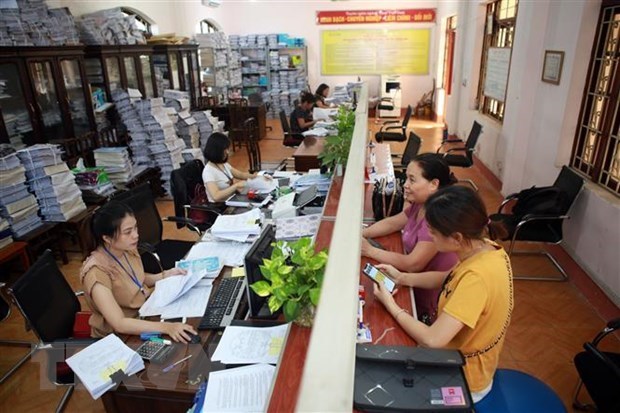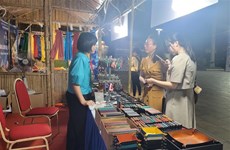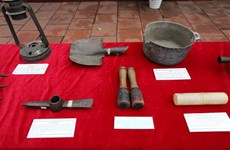Lack of uniformity of circulars cause obstacles to businesses: VCCI
 Illustrative image (Source: VNA)
Illustrative image (Source: VNA)Hanoi (VNA) – Overlapping or inconsistent circulars and official letters have pose a big obstacle for business operations, according to the Vietnam Chamber of Commerce and Industry (VCCI).
In order to evaluate the situation, the VCCI, with support from the Australia Supports Economic Reform in Vietnam (Aus4Reform) programme, has held a seminar to gather feedback from enterprises and business associations about the difficulties caused by circulars and official letters.
High level of inconsistency
According to Dau Anh Tuan, Head of Legal Department of VCCI, regulations in circulars and official letters have drawn some negative attention from businesses during their implementation.
For example, he said, enterprises must comply with rules in circulars concerning the appliance of tariff regulations. But in reality, regulations in many circulars are different from those in decrees, causing a lack of uniformity.
Nguyen Hoai Nam, Deputy General Secretary of the Vietnam Association of Seafood Exporters and Producers (VASEP), also pointed out some inadequacies with circulars, such as the difference between circulars and decrees or laws.
For example, Circular 26/2016 and Circular 36/2018 of the Ministry of Agriculture and Rural Development regulate the quarantine of imported aquatic products. Included in these two circulars are food safety criteria for the inspection of aquatic products to be used as food. However, they do not follow the mechanism and method prescribed in Decree 15/2018/ND-CP guiding the enforcement of the Law on Food Safety.
Circular 48/2013 of the Ministry of Agriculture and Rural Development and Circular 52/2015 of the Ministry of Health both regulate the control and inspection of food safety for exported food products but the method of risk management and inspection is completely different.
There are even inconsistencies between circulars issued by the same ministry.
Enhancing the role of “gatekeeper”
At the seminar, many businesses commented on the unreasonably slow process to amend circulars and official letters. For example, in early 2018, businesses proposed an amendment regarding the regulation of the safety and quality inspections of elevators and escalators to the Ministry of Labor, War Invalids and Social Affairs. However, it was not until April 2021 that the Ministry issued a revised document.
According to Nguyen Minh Thao, Head of Business Environment and Competitiveness Department of the Central Institute for Economic Management (CIEM), the main reason for the issue is the orientation of management thinking. Currently, State agencies still manage operations based on existing state tools, rather than with a focus on the development of enterprises.
Another contributing factor is a number of legal provisions are formulated to address a specific set of circumstances rather than situations in general. For example, the circular stipulating the installation of cameras to monitor passengers is based on the case of vehicles carrying an excess of the prescribed number only.
In particular, the representative of CIEM emphasised the lack of a monitoring mechanism for the process of issuing circulars and official letters. Moreover, when errors do occur, it is necessary to attribute the responsibility of promulgating documents, circulars and official letters to ministers and heads of agencies and units.
On the business side, the representative of VASEP suggested that associations and businesses should participate in the process of developing legal letters and drafting agencies should have a progressive attitude towards receiving comments and suggestions.
Tuan held that management agencies need to professionalise the process of drafting circulars, control and combat conflicts of interest, enhance and promote the role of the "gatekeeper" agency in charge of circulars’ quality, strengthen consultation and practical mechanisms for enterprises to participate in and have a more important voice in the circular drafting process. But above all, it is necessary to limit the issuance of circulars./.













